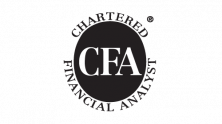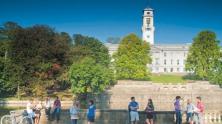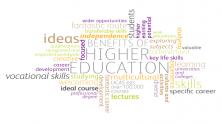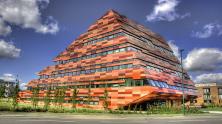
The University of St Andrews launched a new institute to address some of the biggest challenges faced by humanity. John Templeton Foundation gave a grant of £1.6 million to support research relating to major questions of human purpose and reality.
The Logos institute is founded in collaboration of father and son academics Alan Torrance, Professor of systematic theology at St. Mary’s College of the University of St Andrews and Dr Andrew Torrance of the University’s School of Divinity. Alan applied for funding at the Templeton Foundation, to launch an institute at St. Andrews, for analytic and exegetical theology. Simultaneously, Andrew applied for funding to enlarge his work on communications with schools and churches, for which he had earlier received a grant of more than £500,000. Finally, the foundation decided to combine the two applications together and launch the Logos Institute.
There will be complementary part-time positions of four leading international thinkers and a full-time senior. Moreover, there will be research fellowships, six Ph.D scholarships and new Masters programmes along with series of public lectures, a blog, a website, podcasts etc.
Professor Alan Torrance said, “Over the last three decades, a sizeable proportion of academic research in philosophy has been directed towards questions bearing on the existence of God. This renewed interest has resulted in major advances in the field and a wealth of published research. It is in the light of these significant developments that ‘analytical theory’ has emerged."
"The institute will bring this new generation of theological research into conversation with the world-class expertise we have here in biblical studies, philosophy, psychology and international relations. One of the key research topics will be the nature of forgiveness and what this central Christian notion might mean for how we approach religious enmity, sectarianism and indeed terrorism.”
Dr Andrew Torrance said: “Not only does it draw on the insights of biblical scholarship and philosophy, it also draws on the insights of biblical scholarship and philosophy, it also draws on the insights of the natural and social sciences. Further, it seeks to be attentive, to the religious communities that have devoted themselves to pursuing a knowledge of God. Such a diverse conversation is not easy, however. For constructive conversations to take place, those at the table need to share the same language, and this requires conceptual clarity and discipline.”
Professor N.T. Wright, School of Divinity at St. Andrews added: “There are few places in the world where a project this daring and creative could ever be imagined; fewer still where it could be brought at birth. St Andrews is just the place for this remarkable venture, and I look forward eagerly to sharing in it.”
The part-time faculty includes the US-based British theologian Oliver Crisp, American, analytic philosophers Michael Rea and Peter Van Inwagen and American philosopher and theologian, C Stephen Evans. The institutes program includes programmes for schools and churches, lectures and a UK-wide competition for a full scholarship.








